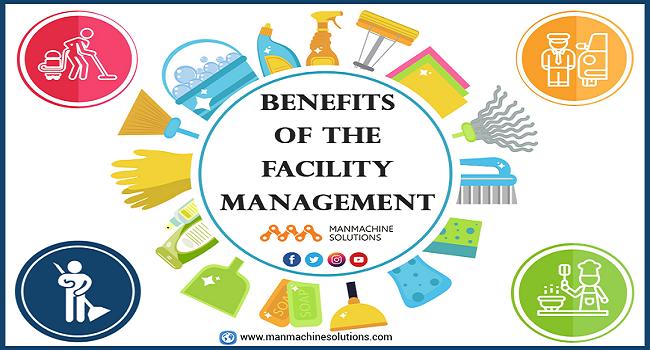8 Major Fundamentals of Facility Management Services

Facility management is a multifaceted discipline that ensures the efficient functionality of built environments by integrating people, processes, and technology. From office buildings to industrial complexes, facility management is essential to maintaining operational excellence. It’s more than just keeping spaces clean or making sure the lights are on—it's about creating an environment where businesses can thrive. This article will dive into the 8 major fundamentals of facility management services, offering insights into how these elements contribute to the overall success of commercial spaces.

1. Maintenance Management
At the heart of facility management lies maintenance management. This includes everything from regular cleaning to more complex tasks like HVAC system maintenance or electrical upkeep. Proactive maintenance ensures that equipment and infrastructure remain in optimal working condition, reducing the risk of breakdowns. Facility managers need to have a maintenance schedule in place to predict issues before they arise, saving companies from costly repairs and downtime. Preventive maintenance also plays a key role in extending the life of equipment.
2. Space Planning and Management
A key aspect of facility management is the efficient use of space. Space planning and management focus on maximizing the utility of available spaces. Whether it's a corporate office, retail store, or industrial plant, using space efficiently is vital to maintaining productivity. Properly organized spaces can boost employee morale, encourage collaboration, and even improve safety. This is especially important in cities like Delhi NCR and Gurugram, where real estate is expensive, and every square foot must be utilized effectively.
3. Health and Safety Regulations
Health and safety are non-negotiable in any facility. Health and safety regulations ensure that the working environment is free from hazards that could harm employees or visitors. Facility managers must be well-versed in the latest local and national regulations concerning workplace safety, fire safety, and emergency preparedness. This involves regular inspections, risk assessments, and the implementation of safety protocols. Ensuring compliance is critical, as violations could result in hefty fines or even legal action.
4. Sustainability and Energy Management
In today’s eco-conscious world, sustainability is a growing priority. Sustainability and energy management within facility management aim to reduce a facility's carbon footprint while ensuring cost-effective energy use. This involves optimizing energy consumption through energy-efficient systems, reducing waste, and implementing green building practices. Managers can achieve sustainability goals by incorporating renewable energy sources, installing energy-efficient lighting, and managing water usage. Sustainable practices not only benefit the environment but can also result in long-term cost savings for businesses.
5. Technology Integration
The role of technology in facility management is becoming increasingly important. Technology integration involves utilizing software systems, like Computer-Aided Facility Management (CAFM) or Integrated Workplace Management Systems (IWMS), to streamline operations. These systems enable facility managers to track maintenance schedules, manage assets, and monitor space utilization in real time. Technology also plays a role in improving security systems, from surveillance cameras to access control systems. The Internet of Things (IoT) further enhances facility management by offering connected devices that automate tasks, improving efficiency and accuracy.
6. Vendor and Contract Management
Vendor and contract management is another core element of facility management. Facility managers are often responsible for managing third-party vendors who provide services like cleaning, landscaping, security, and pest control. This involves negotiating contracts, ensuring service-level agreements (SLAs) are met, and maintaining good relationships with vendors. Effective vendor management ensures that services are delivered on time and within budget, contributing to the smooth operation of the facility. Additionally, clear contracts protect the company’s interests and set expectations for performance and cost.
7. Emergency Preparedness and Business Continuity
Every facility must be prepared for unforeseen events, whether it's a natural disaster, fire, or other emergencies. Emergency preparedness and business continuity are critical to ensuring that a facility can withstand disruptions and resume normal operations quickly. Facility managers must develop comprehensive emergency response plans, conduct drills, and have backup systems in place. These preparations not only safeguard employees but also protect the business from significant financial losses. Ensuring that data and critical systems are backed up, and having a clear communication plan during emergencies, are essential to business continuity.
8. Financial Management and Budgeting
A facility's operations cannot run smoothly without proper financial management. Financial management and budgeting involve planning and controlling the financial resources needed to maintain the facility. This includes budgeting for maintenance, repairs, utilities, and other operational expenses. Facility managers must ensure that their budget aligns with the company's overall financial goals while maintaining the necessary level of service. They must also track expenditures and identify areas where cost savings can be achieved without compromising quality or safety. Proper financial oversight ensures the sustainability and success of facility management operations.
The Role of Facility Management in Business Success
Facility management services go beyond keeping buildings operational. They are a strategic part of a company’s success. By ensuring that spaces are safe, efficient, and well-maintained, facility management services contribute to a positive work environment that boosts productivity and employee satisfaction. In regions like Delhi NCR, where businesses face a fast-paced and competitive landscape, having a reliable facility management provider can make a significant difference.
Companies like Manmachine Solutions excel in offering comprehensive facility management services. They understand that each business has unique needs, and they tailor their services to ensure smooth operations. Whether it’s managing day-to-day tasks like cleaning or more complex operations like energy management and security, facility management services from trusted providers ensure that businesses can focus on their core operations without worry.
Conclusion
Facility management services are vital to ensuring that commercial spaces operate smoothly and efficiently. By understanding the 8 major fundamentals—from maintenance management to financial oversight—businesses can make informed decisions when choosing a facility management provider. Investing in a facility management service like Manmachine Solutions can help enhance productivity, reduce operational costs, and maintain a safe, sustainable environment.

Comments